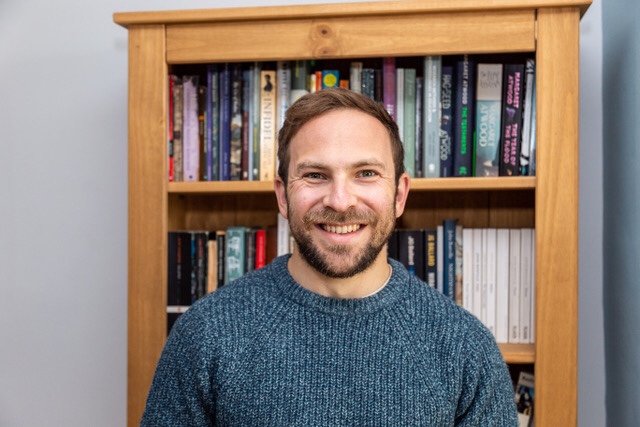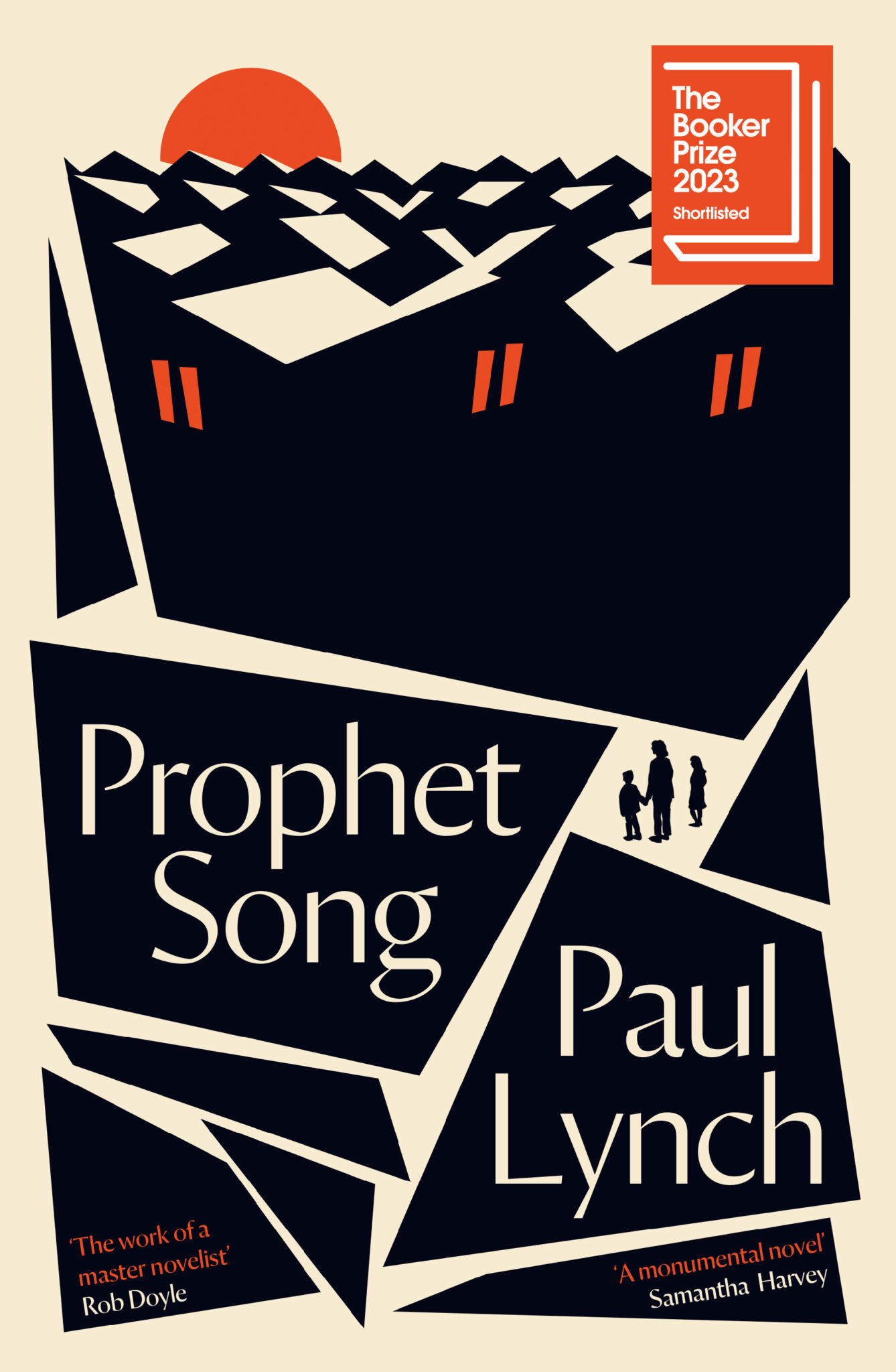*** Warning! This review contains spoilers! ***
Paul Lynch’s Prophet Song (Oneworld, 2023) won the Booker Prize for ‘captur[ing] the social and political anxieties of our current moment’.[1] Set largely in Dublin, it is a dystopian novel depicting an Ireland falling into totalitarianism. Lynch is the fifth Irish writer to win the Booker Prize, following Anne Enright in 2007.
Prophet Song relates how Eilish—a microbiologist, mother of four and wife of a trade union activist—navigates an unknown world willed with unforeseen political problems.
Prophet Song is a scary book.
The reader witnesses Eilish struggle to keep her family together in the midst of the violence that descends on her country. The shock of the dystopia is felt especially keenly for patronising English-language readers: this isn’t what happens in our countries where we are civilised.
Not since 1651 in England anyway. Or 1865 in the USA. Or 1923 in Ireland.
Totalitarianism degrades
Faces and facial expressions are central to the narrative. Eilish seems to understand this, such as when she looks at her son’s girlfriend, ‘searching for something that remains hidden in the girl’s face’.[2]
But faces also register the degrading experience of dystopian totalitarianism.
For instance, we can look at Eilish’s eldest son, Mark, who joins the rebel forces. At first just protesting and rioting, Mark nonetheless visibly wears the experience: ‘He sighs and stands up taking his full height over her, his chin flecked with stubble and for a moment she does not know him.’ (Lynch, p. 100)
Or there is the detective inspector who, caught off guard, ‘smiles […] the smile of somebody you know to say hello to on the street, […] and yet behind that smile lies the shadow of the state’ (Lynch, p. 60). As the novel develops, ‘it is the uniform that speaks not the mouth’ (p. 119), and so the face is adulterated and becomes the face of terror and murder.
Levinas’s vis-à-vis
Emmanuel Levinas (1906–95), French theorist and philosopher, was intimately aware of the importance of the face. Simply, the face is important because of the ‘straightforwardness of facing things’: it is how we come across other people.[3] We face them, and they present their face to us. The face-to-face—or vis-à-vis in French—is how we meet and engage with people.
The vis-à-vis includes an ethical element. That’s because ‘this facing of the face […] summons me, demands, me, claims me: as if the invisible death faced by the face of the other—pure otherness […]—were “my business”‘ (Levinas, p. 125). When face-to-face with someone else, we enter into a very personal relation with them. Levinas’s point relies on his idea that the plain face cannot hide its vulnerability and mortality. This is what facial expressions testify to.
Beyond this ‘demand’ on us to look someone in the eye, there is also a ‘responsibility for the death of the other’ and an obligation not to ‘abandon[] the other to his aloneness’ (Levinas, p. 125). In other words, a smile can encourage us to help the other person, but also to understand how other the other person is.
And yet, ‘Expression [also] tempts and guides the violence of the first crime […]. The first murderer [… with his] violent aim’ (Levinas, p. 125) will have witnessed the success of his strike on his victim’s face.
Death therefore always shadows our facial expressions, visible in the vis-à-vis encounter.
Wishing away the face’s power
Eilish’s power to discern faces wanes. Or, at the least, she becomes disinterested in faces. ‘She will not remember this face,’ we read when Eilish applies for a job at a supermarket, ‘seeing how this face has already been told, seeing how all faces have been told’ (Lynch, p. 180). Citizens’ faces are now tired and losing their ability to express inner personality.
Or perhaps that’s what Eilish wished for.
Eilish’s ability to read faces reaches an unbearable pitch of pain when she finally finds the corpse of her son, Bailey. He has been tortured and killed by the military. She finds his body in a morgue.
While she looks through dozens of body bags
she unzips another [one] saying, this is not my son before she has even taken read of the face, this is not my son, this is not my son, this is not my son, this is not my son, seeing before her the face of Bailey serenely broken, […] and what was bent inside her breaks so that wretched howl escapes her body and she takes his face into her hands, stares into the face of the dead child seeing only the living child[.]
Lynch, p. 272
In an inversion of Levinas, now Eilish can see Bailey’s living face where there is a dead one. It is a wishful fantasy, of course, but it is in the face that Eilish’s wish settles, despite the other violences the military committed on his body.
And perhaps this is one of the many lessons we can learn from Prophet Song—a book that, by its very title, is proposing to offer a dismal warning for the future: that totalitarianism, to which we are sliding with increasing velocity around the world, doesn’t just kill. It also totally corrupts foundational ethics.
[1] See the comments from Esi Edugyan, Chair of the judges, here.
[2] Paul Lynch, Prophet Song (London: Oneworld, 2023), p. 161.
[3] Emmanuel Levinas, Entre Nous: Thinking-of-the-other, trans. Michael B. Smith and Barbara Harshav (London: Continuum, 1998 [1991]), p. 125.


Leave a Reply